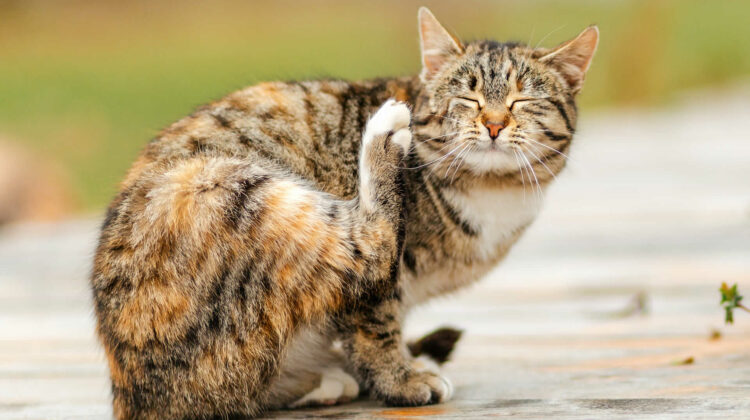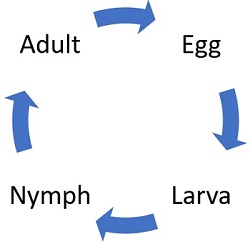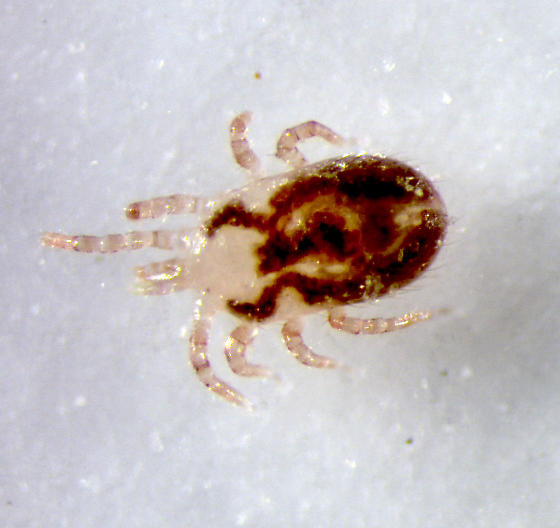Bird mites are tiny arthropods that feed on the blood of birds.
Although they are commonly found in chicken coops and bird nests, they can also infest homes.
Bird mites are black or red and have oval-shaped bodies. They are wingless but can move quickly, and they reproduce rapidly.
Although bird mites do not carry diseases, they can cause irritation and inflammation when they bite humans or animals.
In severe cases, bird mite infestations can lead to anemia or even death in young birds.
Can Bird Mites Live On Cats?

Bird mites prefer leaving and feeding on birds because bird blood is their only way of surviving.
They need avian blood to go through their entire life cycle from egg, larva, nymph, to adult.
That said, these pesky creatures are very adaptable. If they do not find birds to live on, they can easily adapt to leaving on cats and other mammals.
Even though bird mites can feed on the blood of cats, they will not survive as long and will eventually die.
A bird mite infestation on a cat is therefore not common, but it is possible.
If birds abandon a nest or die, the fleas that might have infested the birds will look for a new host.
Once your cat comes into contact with an abandoned nest, the fleas will most likely jump onto the cat.
The thing to remember is that bird mites can’t fly—they can only jump.
For this reason, your cat is will not be in danger of a bird mite infestation if they do not come close to an infested bird or nest.
If you have pet chickens or other birds, then the chances of it happening will be higher.
If you think your cat may have bird mites, look for signs of irritation such as excessive grooming, biting, or scratching.
The mites can also be seen crawling on the skin or in the fur. If you suspect your cat has bird mites, take them to the vet for treatment.
How Long Can Bird Mites Live On Cats?

Bird mites cannot live for long on a cat. This is because bird mites cannot survive on mammal blood for more than a few days.
They need avian blood to go through their life cycle and will eventually die without it.
In addition, cats groom themselves regularly, and the bird mites will be removed when the cat licks its fur.
On average, an adult mite can live for about two weeks without a blood meal.
However, the larvae and nymph stages of the mite’s life cycle are much shorter.
The larvae stage only lasts for three to five days, while the nymph stage only lasts for one to two days.
This means that bird mites will not survive long on a cat even if they can find a blood meal.
How to Get Rid Of Bird Mites on Cats

Mites may be harmless to birds but the same cannot be said of cats.
First of all, the mites can make your cat really uncomfortable. You may notice your kitty scratching and biting at his skin incessantly.
In severe cases, the mites can even cause anemia. This is why you should nip the problem in the bud before it gets worse.
Here are some steps you can take to keep your cat safe from bird mites.
I. Remove Any Empty Nests
Be sure to remove any empty nests from your yard as these can be a breeding ground for mites.
Bird mites can still remain in the nests long after the birds have moved away and will then jump onto your cat at the earliest opportunity.
II. Observe Hygiene
Like most other pests, proper hygiene can be a great way of dealing with bird mites.
Mites thrive in dusty and dirty environments and keeping your home clean is one way of keeping them at bay. If you have pet birds, make sure their cages are always clean.
III. Vacuum Regularly
Another way to keep bird mites at bay is to vacuum regularly.
These pests love hiding in cracks and crevices and will often be found in carpets and upholstered furniture.
Vacuuming regularly will help to remove the mites and their eggs from your home.
IV. Use Insecticides
There are several mite-killing products available on the market.
These can be used to treat both your home and your cat if he is infested with mites.
Be sure to follow the instructions carefully when using these products.
V. Take Your Cat to the Vet
If the problem persists, you may want to take your feline friend to the vet.
The vet will be able to prescribe medication that will kill the mites and relieve your cat’s symptoms.
In severe cases, the vet may also recommend hospitalization and intravenous fluids.
Parting Thoughts
As we have seen, bird mites thrive on avian blood and will avoid living on other species if they can.
However, if they don’t have a suitable host, they can easily adapt to living on cats and other mammals.
You should therefore take the necessary precautions to keep your kitty safe from these pesky parasites.
Start by practicing proper hygiene which includes regular vacuuming and keeping your cat and his toys and bedding clean.
Also, if your cat gets mites, deal with them right away to prevent further spread.
However, while they are alive, bird mites can cause irritation and discomfort to your cat. If you think your cat has bird mites, take them to the vet for treatment.

Hi! I am Eleanor Price. I started this website after my cat, Louie, almost died from a case of botulism (a type of food poisoning often caused by bacteria that grow on food items). Turned out that my cat’s diet was the problem. I have made it my duty to provide the best information and recommendations about everything cat lovers need to know about their felines’ health and wellbeing. My goal is to find the most informative content on anything feline-related and share it with fellow hardworking kitty lovers.

